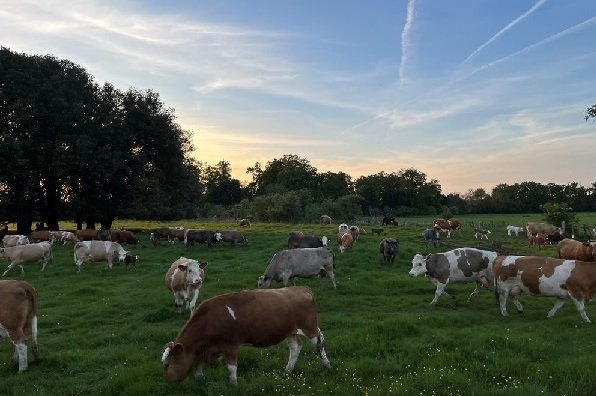Recognition of Prior Learning (RPL) Policy

1. Purpose:- The purpose of this document is to provide guidance, support and clarification to Vale Training Services on implementing and claiming credits against RPL assessment.
2. Definition:- A process of assessment [leading to the award of credit] that considers whether a learner can demonstrate that they meet the assessment requirements for a unit/qualification through knowledge, understanding or skills they can evidence that they already possess and which do not require further development at the identified level through attending/achieving a further course of learning.
The RPL process is relevant to individuals who can evidence that they have previously gained knowledge or understanding or learnt a skill or competence relevant to their current programme of study.
Evidence could be drawn from various aspects of a learner’s prior learning including – • education and training • work activities • community or voluntary activities .This evidence will be assessed along with all other evidence submitted.
3. Introduction :- 3.1 Vale Training Services seeks to enable learners to avoid the duplication of learning and assessment. There are two ways in which this will be achieved: • The opportunity to transfer unit credits, i.e. to recognise previously accredited achievement from within or outside the Qualification Framework to count towards other qualifications. • For individuals with learning or achievements that have not been certificated / accredited it may be possible to assess and validate these through an RPL and interview process . These achievements may then count towards a qualification.
4. Audience:- 4.1 The intended audience for this document is: • Quality Assurance Managers in recognised centres. • Internal Quality Assurers • Assessors • Vale Training Services appointed External Quality Assurers • Vale Training Services staff • Qualifications Regulators. 4.2 The policy and procedure will apply to qualifications approved by the relevant regulatory authorities.
5. Policy:- 5.1 In order to achieve the above, a learner must produce valid and reliable evidence of learning to support any claims based on prior achievement of learning; demonstration of understanding or formal recognition of level and scope of understanding. A learner may claim RPL against a whole unit or several units. It is not possible to award part units, but where the RPL evidence does not fully meet the needs of a complete unit, the missing information may be provided via the same assessment processes that are undertaken by a taught group of learners.
Recognition of Prior Learning (RPL) Policy and Procedure
5.2 In order to achieve recognition of achievement there are two options open to the learner: • Undertake the same assessments as those following the formal course of learning and assessment that lead to the desired unit or qualification. These assessments may be undertaken without attending the teaching sessions. • Submit a portfolio of evidence based on previous learning, skills and / or competence cross referenced to the learning outcomes and assessment criteria of the unit or units for which RPL is being sought which is assessed as part of the total submission.
5.3 Under some circumstances, there may be a limit to the proportion of a qualification that can be achieved by either credit transfer or RPL. Full details of these requirements will be identified in the rules of combination for any qualifications offered by Vale Training Services.
5.4 Learners wishing to avail themselves of this method of accreditation must negotiate the procedure with the organisation through which they wish to claim the award of credit. All member organisations of Vale Training Services must have policies and procedures and trained staff, which enables these processes to be invoked and implemented. The provider organisation may choose to charge a fee for these services.
5.5 The learner must play an active role in the process as s/he must produce evidence and map it to the learning outcomes and assessment criteria of all units they wish to claim. Appropriately trained staff from the provider organisation concerned should be available to give specialist advice on this process. The individual wishing to make the claim may also require the support of their employer or other organisation, (e.g. if they have worked as an unpaid volunteer), to provide formal evidence in order to be able to confirm achievement of assessment criteria for which there is no tangible evidence, e.g. a practical task.
6. Principles of RPL:_6.1. RPL is a valid method of enabling individuals to claim credit for units and qualifications of the Qualification Framework, irrespective of how the learning took place and the assessments were undertaken. There is no difference between the achievement of the required standards (i.e. ACs being met at the required level) gained through prior learning or through a formal programme of study.
6.2 RPL must comply with all regulatory requirements for assessment. RPL policies, processes, procedures, practices and decisions should be transparent, rigorous, reliable, sufficient, fair and accessible to individuals and stakeholders to ensure that users can be confident of the fidelity of the assessment decisions and outcomes of RPL.
6.3 RPL is a learner-centered voluntary process. The individual should be offered advice on the nature and range of evidence considered appropriate to support a claim for assessing RPL, and be given guidance and support to make his or her claim. It remains the role of the assessor and quality staff to ensure that assessment criteria are only deemed to have been met where assessment is valid; reliable and fit for purpose and where evidence is adequate, sufficient and authentic.
6.4 The process of RPL is subject to the same standard of scrutiny through the application of existing quality assurance and monitoring processes as any other form of learning and assessment.
6.5 Assessment methods for RPL must be of equal rigor as other assessment methods, must be fit for purpose and relate to the evidence of learning. An individual may claim
Recognition of Prior Learning (RPL) Policy and Procedure RPL against any whole unit unless the assessment criteria of a unit states otherwise. Where a qualification specification stipulates a Prescribed (P) method of assessment, this has to be met, or if an external assessment is set in the standard a learner must achieve, then the learner must pass the external assessment to achieve the unit and gain the credit.
6.6 RPL assessment is carried out by designated staff with the necessary levels of expertise.
7. Guidance for implementation Vale Training Services will expect the following elements to be present in any RPL policy operated by a provider with formal records maintained for scrutiny by both internal and external quality assurance staff -
7.1 Stage 1: Awareness raising regarding claiming of credit – information, advice and guidance Once learners have decided to consider their learning for RPL purposes, they will need to know about:
• how to claim credit via the RPL process
• sources of professional support and guidance available to individuals and employers
• the administrative processes for RPL applications
• timelines, appeals processes, and any fees or subsidies
• the currency of existing credits, qualification, experience, skills or competence, (i.e. does the evidence relate to current learning? Have the skills and knowledge been applied regularly to maintain levels of application/practice and understanding in line with unit ACs and identified unit level? Where centres and / or professional, statutory or regulatory bodies have specific requirements and / or time limits for the currency of evidence, certification, or demonstration of learning, these should be made clear and transparent).
7.2 Stage 2: Pre-assessment – gathering evidence and giving information.
7.2.1 When an individual has decided to pursue an RPL route towards achievement it is vital that the candidate is fully informed of the RPL process and has sufficient support to make a viable claim and to make decisions about evidence collection and presentation for assessment
7.2.2 During this stage, the candidate will carry out the evidence collection and develop an assessment plan possibly with support from the assessor. The evidence required for the award of credit will depend on the purpose, learning outcomes and assessment criteria for the relevant units.
7.3 Stage 3: Assessment / documentation of evidence.
7.3.1 Assessment as part of RPL and within the Quality Framework is a structured process for gathering and reviewing evidence and making judgments about a candidate’s prior learning and experience in relation to unit standards.
7.3.2 Assessment must be valid, reliable with consideration given to issues of inclusion to ensure the integrity of units and qualifications and the RPL system as a whole. The assessment process for RPL must be subject to the same quality assurance processes of awarding organisations as any other part of the assessment process. Learners’ work which contributes towards their claim for credit via the RPL process should be internally and externally verified and all achievement documented as for conventional learner achievement. All RPL– related achievement should be identified as such in all documentation.
Recognition of Prior Learning (RPL) Policy and Procedure
7.4 Stage 4: Awarding credit. Vale Training Services as the awarding organisation is responsible for awarding credit. The procedure is the same as for other forms of assessment. The credit is recorded in the learner record. Any claims for credit via RPL should be identified as such to ensure that the appropriate amounts identified in rules of combination for qualifications are not exceeded. This will be recorded as RPL as opposed to normal assessment methods and on the claims for credit towards a full qualification. Certificates, where appropriate, are awarded by Vale Training Services with RPL credits being identified as such and RPL will be recognised on credit transcripts.
7.5 Stage 5: Feedback. After the assessment, the assessor will need to give feedback to the candidate, discussing the results and giving support and guidance on the options available to the candidate, particularly if the decision has been not to award credits which may include, for example, further learning and development.
7.6 Stage 6: Appeal.
7.6.1 Learners should be made aware of their right to access the organisation’s appeals process and how to access it.
7.6.2 If claimants wish to appeal against a decision made about their claim for credit (via the RPL process) they would need to follow the standard appeals processes that exist within the Vale Training Services member organisation.
8. Collating information on the use of RPL
8.1 In order to quantify the use of RPL processes, external verifiers will be required to identify the provision where RPL has been applied. Collated information about the use of RPL and credit exemption will be made available as part of the annual quality reporting process.
8.2 RPL assessments should be included in standardisation and evaluation activities so that processed are reviewed and approaches improved on the basis of user feedback.
RPL is not the same as –
• An exemption • An equivalent • A credit accumulation or transfer • A qualification legacy (i.e. ‘grandfather rights’) • A predecessor qualification • A shared unit
Reviewed July 2020

